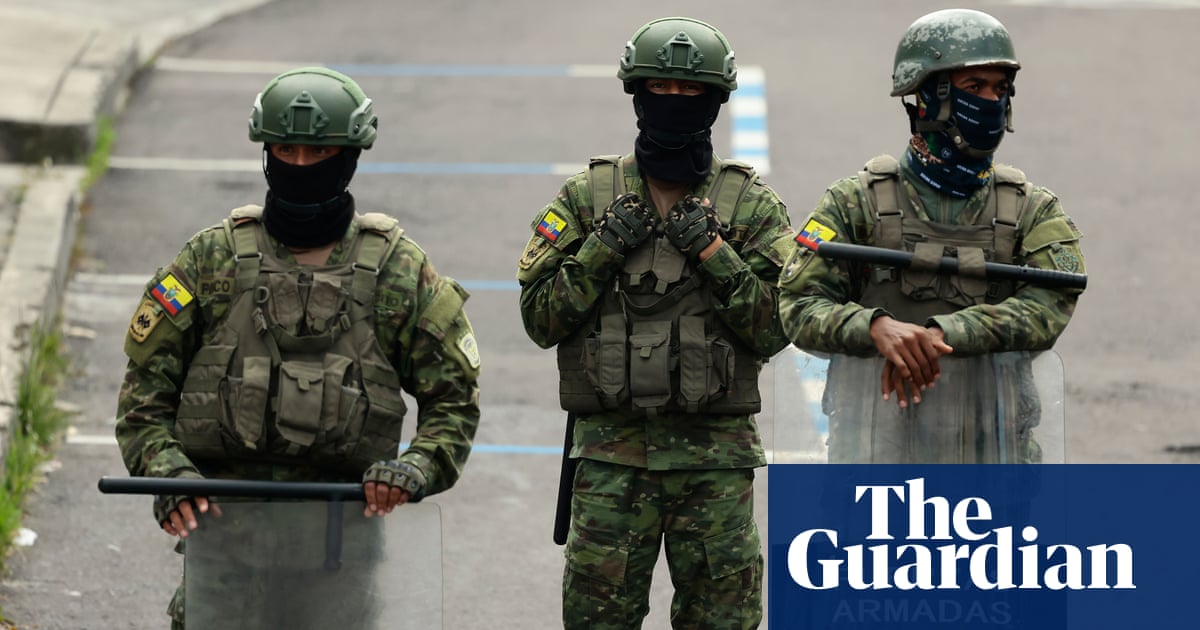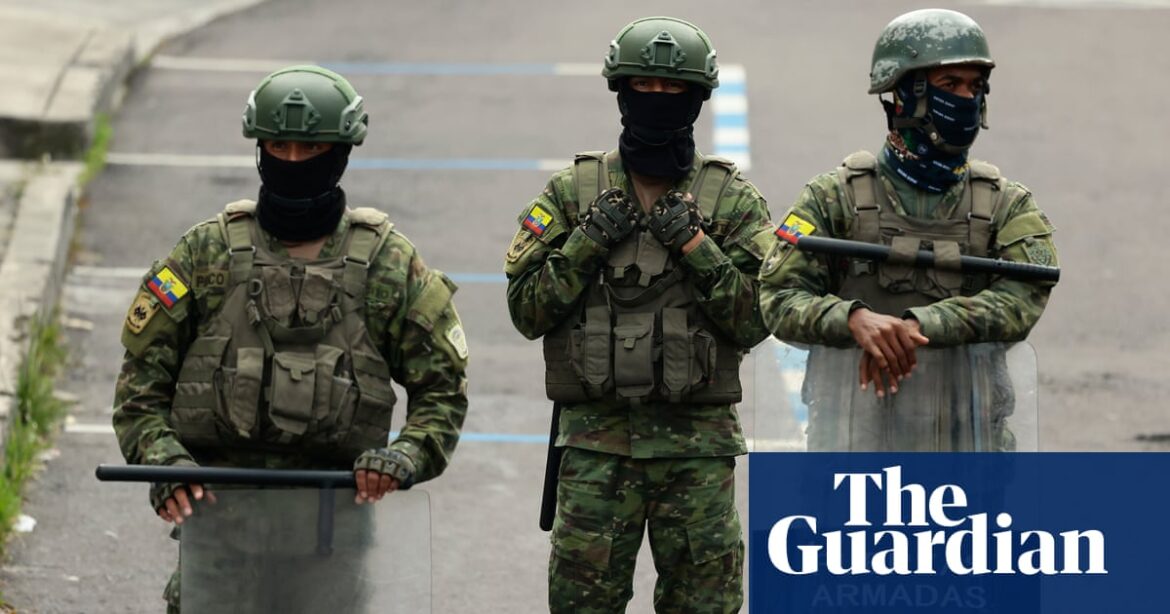
President Daniel Noboa of Ecuador declared on Wednesday that his nation is currently engaged in a conflict against drug organizations. These gangs have taken over 130 prison employees as hostages and even briefly took control of a television station during a live broadcast. This has led to a state of chaos and fear, causing the city streets to become empty and deserted.
At least ten individuals, including law enforcement personnel, have lost their lives in the assaults.
During a live broadcast on Tuesday, police special forces captured gunmen who had stormed a TV station, causing the images to circulate globally.
Videos shared on social media depicted a horrifying sequence of additional assaults, such as car explosions, the killing of law enforcement officials in public, the alleged lynching of prison staff, and attempted seizures of medical facilities and a university in Guayaquil. The Ecuadorian police verified that two officers had lost their lives.
During a radio interview on Wednesday, Noboa declared that they are combating narco-terrorism. He also mentioned that the videos depicting the alleged killing of prison guards are being spread to intimidate the public and weaken the president, but that will not be successful.
He expressed his condolences to the families, acknowledging that we are currently in a state of war and cannot give up.
The surge of aggression led the president of Ecuador to release a decree on Tuesday identifying almost twenty criminal organizations as terrorist groups and granting permission for the country’s military to “neutralize” these factions in accordance with international laws of warfare.
Admiral Jaime Vela, leader of the armed forces’ joint command, stated on Tuesday that a wave of violence was orchestrated to intimidate the public. He also declared that any terrorist group mentioned in the decree would now be considered a military target.
In response to recent incidents of jail violence and the escape of a notorious gang leader, Adolfo Macías, also known as Fito, President Noboa, who was elected in October with a platform focused on reducing violent crime, has declared a two-month state of emergency as of Monday evening. This move aims to address the situation and restore order.
The government claims that the recent violence is a response to Noboa’s proposal to construct two high-security prisons for gang leaders, which are modeled after the controversial design used by El Salvador’s president Nayib Bukele. Bukele’s prison, which can hold up to 70,000 alleged gang members, has sparked concerns about human rights and the incarceration of innocent individuals.
Last week, Noboa stated that the proposed prisons would be identical to those in El Salvador. He humorously invited “Bukele lovers” (referring to followers of the Salvadorian president) to come and see for themselves.
In the past, relocating gang leaders to different prisons has often resulted in outbreaks of violence, resulting in the deaths of hundreds of inmates in recent times.
The prison authorities in Ecuador reported that a total of 139 employees, including guards, were being held captive in several prisons. This comes as unverified footage has surfaced showing possible acts of violence and murder against prison staff. The report also stated that 11 guards have been freed.
Most cities in Ecuador had to shut down businesses and offices, and students were required to study from home for the rest of the week.
The video captured clashes between soldiers and unidentified armed individuals in the south of Ecuador. Other posts on social media displayed armed men on the roads, causing traffic to come to a halt.
Officials in Guayaquil reported that there were occurrences of “takeover” at five hospitals, but that law enforcement and military personnel were able to regain control. The details of these incidents are currently unknown.
The streets of the city were strangely silent and there was little indication of the significant military presence that was pledged by Ecuador’s leader.
On Wednesday afternoon, the typically lively La Bahia market in Guayaquil was eerily quiet, with only a few of its many metal stalls open for business.
“We are paralyzed. We are utterly paralyzed. The whole city is like this,” said watch repairer Juan Ciro Granados Criollo, 70, who could only remember seeing the region so empty on one other occasion: during the Covid pandemic.
Martha Sanchez, a 38-year-old owner of a store, expressed feeling overwhelmed by doubt. She openly stated, “To be honest, I am scared,” and urged the authorities to take decisive action in response to the criminal assaults. She described the situation as complete disorder.
Peru has declared a state of emergency on its northern border with Ecuador on Tuesday evening. Prime Minister Alberto Otárola stated that the declaration would send an unspecified amount of army soldiers to assist police forces, and the defense and interior ministers would also journey to the border.
On X, Brian A Nichols, the assistant secretary for western hemisphere affairs at the US state department, expressed deep worry over the recent acts of violence and abductions in Ecuador. He also stated that the United States supports the citizens of Ecuador.
Noboa announced that the country will start expelling foreign inmates, particularly Colombians, this week in an effort to decrease the number of prisoners and save money.
According to Noboa’s statement on the radio, approximately 1,500 Colombians are currently incarcerated in Ecuador. He also mentioned that a majority (90%) of incarcerated foreigners are from Colombia, Peru, and Venezuela.
The justice minister of Colombia stated on a radio interview that he is open to collaborating with Ecuador. However, according to Colombian law, repatriations must be evaluated individually and requested by the prisoners themselves.
Colombia has, like many Latin American countries, expressed its support for Ecuador’s government, and said on Wednesday it would increase military presence and controls along their nearly 600km (370-mile) shared border.
Source: theguardian.com



